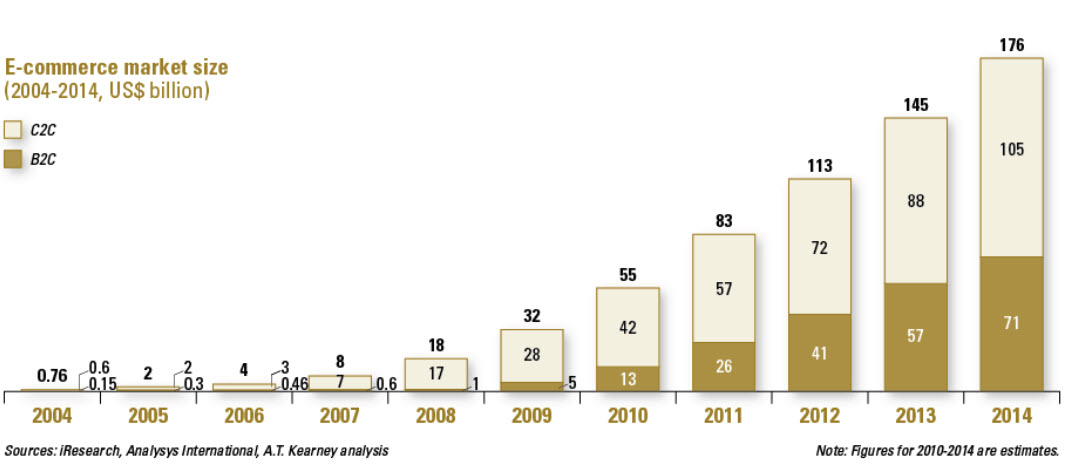EBay entered into the China market in 2002 by acquiring EachNet, a leading auction site in China and was successful in capturing a considerable share of the Chinese e-commerce market. However, even if the company modelled its Chinese site on the lines of its globally successful site, eBay failed to attract significantly the Chinese consumers . eBay also faced tough competition from local e-commerce companies such as Taobao.
Cultural differences and varying market demands
eBay failed to recognize that the Chinese market and the business environment are very different from the West. eBay sent a German manager to lead the China operation and brought in a chief technology officer from the United States. There was language barrier and insufficient understanding on the local market. Taobao on the other hand was managed by the Chineses and they understood the local culture and needs perfectly. Even the name “Taobao” in Chinese meant to dig for treasure which was an ingenious use of words that caught the attention of the Chinese almost immediately.
Although eBay tried hard by coming up with a Chinese name but it was not as catchy as Taobao and it did not match with the traditional Chinese culture to be fond of treasures.
Marketing techniques
It is the aim of consulting firm in China to help foreign brand as eBay to understand their local market. In eBay’s case, a lot of effort have been made, such as advertising on the Internet in a country where small enterprises didn’t use the Internet. Also, eBay did not benefit in China of the same strong brand foundation than in the United States. Taobao on the contrary, made use of media such as popular television shows for its advertising. This straightforward kind of advertising poses to be a success as it appeals to small business owners.
Rather than adapting products and services to local customers, eBay continued with its “global platform” format, which again did not fit local customers’ tastes and preferences. eBay is thus unable to fulfill the 4Ps business model.
Cost free system
eBay in China was charging users to list products and services which will discourage sellers to set up online shops on its website. This will thus cause a decrease in goods and services provided on eBay and buyers will look for alternatives because of the lack of choices. Despite eBay announcing that it will no longer charge a transaction fee on sellers on its Chinese Web site in 2006, it was already too late as Taobao had already made use the period of time (where eBay still collects fees) to garner a loyal base of supporters.
From the diagram above, it is apparent that B2C business models are on the rise in recent years. However, eBay stuck to its C2C business model which even though is still rising in profitability but will jeopardize the ability of eBay to be kept at the competitive edge.
Payment methods
Taobao cooperated with almost every local bank in China to build up a highly secured network for online banking. However, for eBay, one could only pay via paypal, credit card and some debit cards of local banks. eBay also accepts manual transaction of funds through bank accounts and not much of online banking is accepted if you are using a debit card. This makes payment much of a hassle and discourages consumers from making purchases there. With lack of consumers, there will be no demand and hence there will be a plummet in sellers using eBay in China.







